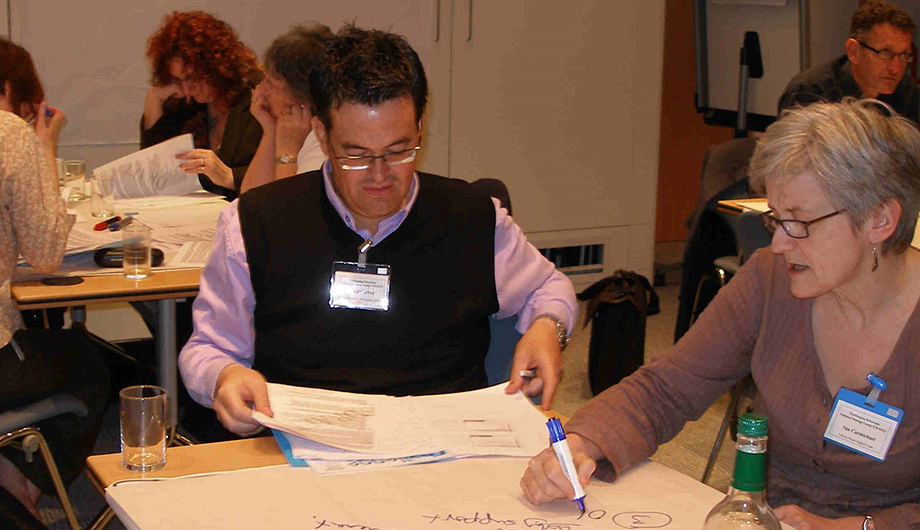
Family Support Service
The Family Support Service can provide information and support about the needs of your family member with a severe learning disability. Our support is confidential, and we won’t judge you or tell you what to do.

This page addresses issues of restraint and seclusion, and medication. Read about what these issues are, and the related activities the CBF has been involved in.
Jump to: Restraint and seclusion Protecting Rights; Eliminating Restraint GroupMedication
When we refer to restrictive intervention with children, we mean:
Find out more about:
Physical restraint & seclusion
We are working together with family carers and professionals who are passionate about eliminating restrictive interventions and protecting the rights of disabled children and young people. We are working with campaigners and other stakeholders to share information, good practice and updates about policy and legislation changes from across England, Wales, Northern Ireland and Scotland, in addition to identifying actions needed to drive positive change.
We are known as the Protecting Rights: Eliminating Restraint Group. We were formerly known as RRISC (Reducing Restrictive Interventions and Safeguarding Children). The name was changed in 2022 to reflect the group’s focus on the rights of disabled children and young people and the importance of eliminating restraint wherever possible.
At a meeting of the Reducing Restrictive Interventions and Safeguarding Children group (now known as the Protecting Rights; Eliminating Restraint group) we filmed three parents talking about restrictive intervention experienced by their children, and the long-term impact on the whole family. You can watch the short film we made:
Our reports share family carers’ shocking accounts of their children’s experiences of restrictive intervention through a survey and case studies. We found children are being injured physically and emotionally though the use of restraint, seclusion and other restrictive practices in schools. You can read the reports here:
Reducing Restrictive Intervention of Children and Young People: case study and survey results (2019)
Reducing Restrictive Intervention of Children and Young People – update of case study results (2020)
We launched our case study update report at an event at the House of Lords on 10th February 2020 hosted by Baroness Sheila Hollins. The aim of the event was to raise awareness about this hidden issue and encourage different organisations, researchers and stakeholders across the UK to pledge to action to reduce restrictive interventions of children and young people.
I hope we will look back on today as the start of a real process of change – Baroness Hollins
Medication, or chemical restraint, is a frequently-used restrictive intervention. You can read about the CBF’s specific work tackling the use of over-medication and inappropriate medication here:
Resources on our website
The CBF has information available for anyone who has concerns about the issues raised which can be found here:
Family Support Service
If you have been affected by any of the issues raised in this statement, you can call the Family Support Service on 0300 666 0126
Or email us at support@thecbf.org.uk
We are open at the following times:
Monday – Thursday: 9am – 5pm
Friday: 9am – 3pm
We offer information about challenging behaviour to anyone who provides support to a child, young person or adult with a severe learning disability. We can also signpost you to other specialist organisations and sources of information.
Please note we are a small support service so you may not be able to get support straight away. We will support families with urgent concerns as a priority.
Professionals are also welcome to contact the CBF.

The Family Support Service can provide information and support about the needs of your family member with a severe learning disability. Our support is confidential, and we won’t judge you or tell you what to do.

This information page answers four questions about what to do if you are worried about the safety of someone with a learning disability, and who you should tell. It also describes what happens when child and adult protection referrals are made.

The CBF aims to improve lives for individuals with severe learning disabilities who display behaviour that challenges through our project work, using new approaches and encouraging others to learn from this work and improve their practices.